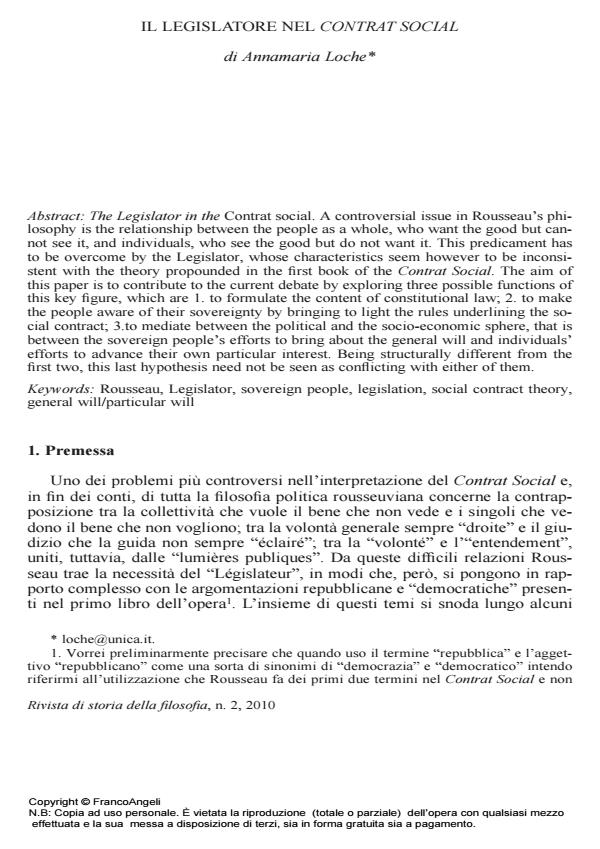The Legislator in the Contrat social
Journal title RIVISTA DI STORIA DELLA FILOSOFIA
Author/s Annamaria Loche
Publishing Year 2010 Issue 2010/2
Language Italian Pages 24 P. 247-270 File size 818 KB
DOI 10.3280/SF2010-002003
DOI is like a bar code for intellectual property: to have more infomation
click here
Below, you can see the article first page
If you want to buy this article in PDF format, you can do it, following the instructions to buy download credits

FrancoAngeli is member of Publishers International Linking Association, Inc (PILA), a not-for-profit association which run the CrossRef service enabling links to and from online scholarly content.
A controversial issue in Rousseau’s philosophy is the relationship between the people as a whole, who want the good but cannot see it, and individuals, who see the good but do not want it. This predicament has to be overcome by the Legislator, whose characteristics seem however to be inconsistent with the theory propounded in the first book of the Contrat Social. The aim of this paper is to contribute to the current debate by exploring three possible functions of this key figure, which are 1. to formulate the content of constitutional law; 2. to make the people aware of their sovereignty by bringing to light the rules underlining the social contract; 3.to mediate between the political and the socio-economic sphere, that is between the sovereign people’s efforts to bring about the general will and individuals’ efforts to advance their own particular interest. Being structurally different from the first two, this last hypothesis need not be seen as conflicting with either of them.
Keywords: Rousseau, Legislator, sovereign people, legislation, social contract theory, general will/particular will.
Annamaria Loche, Il legislatore nel Contrat social in "RIVISTA DI STORIA DELLA FILOSOFIA" 2/2010, pp 247-270, DOI: 10.3280/SF2010-002003